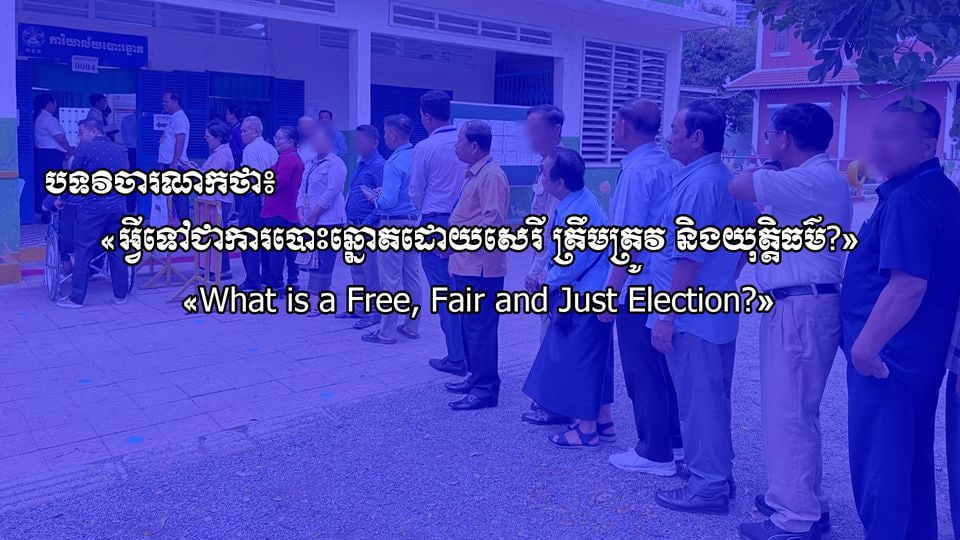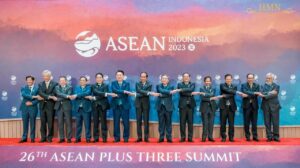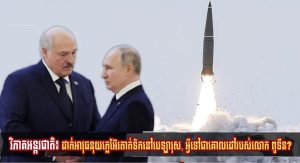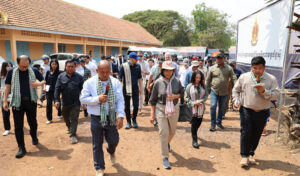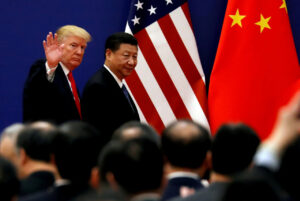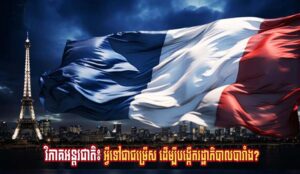Editorial: What is a free, fair and just election?
by KARL
Phnom Penh, October 10, 2024
Lately, the time of criticizing Cambodia for human rights, freedom space, democracy, free, fair and just elections has come again due to the annual meeting in Geneva on Human Rights. Not far from previous years, this year we again hear everything negatives on Cambodia, especially from those who announce themselves as observers on situation in Cambodia. Surprisingly! No single rhetoric from those groups has changed but the characters, who take turns to allege that the Kingdom of Cambodia did not respect human rights, freedom space, democracy, and elections were neither free, fair nor just…. These same tones have been heard for almost two decades.
The phrase “free, fair and just elections” is popularly used, but who could make an explanation and measurement that an election in a country is a free, fair and just? There might be no answer, and they will repeat the same thing again and times. Now, here is an obvious explanation on what everyone memorizes, ” free, fair and just elections ” and ” democracy “.
The international community considers that the democracy is progressive only if it has a genuine heart. What is the genuine heart of democracy? Answer: The genuine heart of democracy is a free, fair and just election.
The question arises, what is a free, fair and just election?
A free, fair and just election shall consist of 10 important elements as follows:
1. A Periodic Election with:
• A neutral and efficient registration system
• Voting secrecy
• Polling Stations close to people’s residences
2. All citizens have equal rights to stand as candidates;
3. Every citizen has equal rights to form a political party;
4. Every citizen and political party have equal rights to express their political views freely;
5. Every candidate has equitable affordability to freely conduct election campaign;
6. Safety mechanisms for candidates during election campaign and the election;
7. There shall be safety mechanism during election campaign and the election;
8. The election management body shall deliver clear and impartial regulations (in accordance with the provisions of the law and relevant laws);
9. There shall be a precise education program for citizens on the election process and its procedures;
10. There shall be an independent, neutral and impartial commission to oversee the electoral process, to receive complaints and resolve electoral disputes.
Only 10 mentioned points can be a standard for a free, fair and election. From author perspectives, Cambodia has the National Election Committee (NEC), an institution stated in the Constitution. The NEC has its laws and internal rules to direct its work in voter registration process, election process, vote counting process and the resolution of violations of the election laws and violations of the election procedures the NEC has been implementing. Yet, why the matter of being undemocratic, unfree, unfair and unjust in Cambodia is still in dispute or because the NEC Cambodia did not follow what they want? The author firmly believes that even if the NEC followed them, it would result in unfavorable outcomes as they have their own agenda. The author expresses full support for the NEC actions, emphasizing that it has acted in strict accordance with the laws and constitution, rather than yielding to outside pressures. Additionally, it is noticed that the election process was conducted without violence or intimidation, and the election result were accepted by all political parties. This reflects a peaceful post-election period in which Cambodia continued to enjoy stability and progressive development.
“Democracy is not a commodity that can be either imported or exported, but it is the choice of the people in the context of that country,” said Dr. Khabele Mattosa, a professor at the University of Johannesburg in South Africa who specializes in electoral science.
What are the choices of the Cambodian people?
The choice is as stated in the preamble of the Constitution . “We, the Khmer People,… in a burst of consciousness, rising up with a resolute determination in order to unite, to strengthen the national unity, to defend the Cambodian territory, to preserve the precious sovereignty and the marvelous civilization of ANGKOR, to re-build the country and become once again an “Oasis of Peace” based on the system of a liberal multi-party democracy, to guarantee human rights, to ensure the respect of law, to be highly responsible for the destiny of the nation forever evolving toward progress, development and prosperity.”
In this direction, since 1998, Cambodia has been the owner of its destiny by holding regular elections on a regular basis as stated in Article 78 of the Constitution.
We can see how many countries in 2024 are not be able to hold elections, while some are facing and suffering severely from the geopolitical conflicts getting worse in the Middle East and we do not know in what extent the chaos will spread in the future.
Is the US the Father of Democracy?
Do the 27 member states of EU definitely have the same democracy, or is democracy in Germany different from France ?
Mr. Dominique TRINQUAND, former head of the French military mission to the United Nations and NATO (North Atlantic Treaty Organization) said that the democracy in the US was deemed global model and also in the Europe. He raised an example of the United States, which has cultivated the democracy in Afghanistan for 20 years and then moved out in disgrace for its failure there. Likewise, France failed to bring democracy to the Sahel region, where eventually three countries, Burkina Faso, Niger and Mali – staged military coups, a rejection of democracy.
What Mr. Dominique TRINQUAND raised is also a reminder for us not to forget ourselves and fall into any trap.
Hence, the choice of the Cambodian people is to continue to take care of what we are having, rather than wanting too much, as a proverb says, a bird in the hand is worth twenty in the bush.
In short, each country has its own problems, and if so, why do some countries or some people like to be so sick of other people’s story, or we can say it is not worth one’s salt?
That is why the head of the Royal Government, Samdach Mohabovor Thepadey Hun Manet, took the view of Mr. Winston Churchill, former Prime Minister of the United Kingdom stating that “You will never reach your destination if you stop and throw stones at every dog that barks.”

